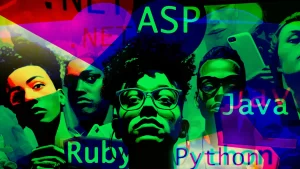
The Promise and Perils of Intelligent AI Assistants
The rapid pace of advancement in artificial intelligence brings both thrilling potential and disquieting uncertainty about the future. Nowhere do we see this tension more clearly than in the surging capabilities of AI personal assistants.
Just in recent years, Alexa, Siri, and other assistants have become fixtures in our homes, phones, cars and offices. These systems use natural language processing to interpret our requests, access vast troves of data, and take actions on our behalf.
These disembodied voices capably handle an impressive range of tasks via conversational commands – playing music, controlling appliances, looking up facts, making purchases, even potentially diagnosing illnesses.
We gleefully welcome the convenience of delegating household chores and other duties to artificially intelligent helpers. But as their capabilities grow more versatile, sophisticated and autonomous, should we also be wary about ceding decisions with real-world impacts to non-human actors lacking human values and context?
Intelligent AI have the potential to profoundly augment human abilities and transform areas ranging from everyday life to highly-skilled professions. AI can retrieve information, provide analysis and recommendations, automate tasks, and conduct operations with far greater scale and consistency than humans could achieve alone.
Some optimistically envision virtually unlimited positives if development continues accelerating exponentially. AI could unlock revolutionary advances in fields from healthcare to transportation. More capable assistants may tutor students, coach employees, care for elderly in ways unimaginably personalized.

Automating drudgery could enable people to focus on more fulfilling and creative pursuits. Sophisticated AI promises huge business value – one study estimated intelligent assistants will drive $15 to $25 billion per year of savings in enterprise costs within just three years.
However, others urgently warn about catastrophic downsides if development proceeds recklessly – not someday, but potentially in our lifetimes. Prominent thought leaders have highlighted risks including mass unemployment or worse from labor automation, algorithms dangerously manipulating people at scale, loss of privacy to ubiquitous surveillance, and military or commercial interests racing ahead with ethics as an afterthought.
And those are just the foreseeable dangers. Perhaps more concerning are totally unexpected threats posed by super-human intelligence far surpassing our ability to understand, predict and control. Imagine autonomous systems independently formulating experiments to advance their own goals without regard to human needs.
Software bugs could trigger catastrophic failures instead of just inconvenient glitches. “AI safety” may sound innocuous, but some experts take it as seriously as nuclear proliferation or bioterrorism.
Reality likely lies somewhere between extreme optimism and pessimism. AI will unlock immense potential, but could also negatively disrupt industries and communities on a global scale within decades, not centuries.
Even if the odds of existential catastrophe are low, the sheer magnitude requires urgent attention, much as we mobilize massive efforts to address risks like pandemics and climate change disasters despite uncertainty.
Thankfully, unlike natural disasters, technology risks are amenable to mitigation if we make it a priority now. Researchers are already working to make AI systems more robust, trustworthy and aligned with human values.
But those efforts need massive investment and coordination. Government policy also lags woefully – regulatory guidance on issues like transparency and accountability remains vague at best.
The global community came together to pursue international norms for governing bioengineering and gain-of-function research, acknowledging the field’s profound promise and risks. We now need leadership and political will at the highest levels to recognize AI as both an epochal opportunity and threat.
The future remains malleable if key stakeholders jointly commit to developing AI safely and for the benefit of humanity.










